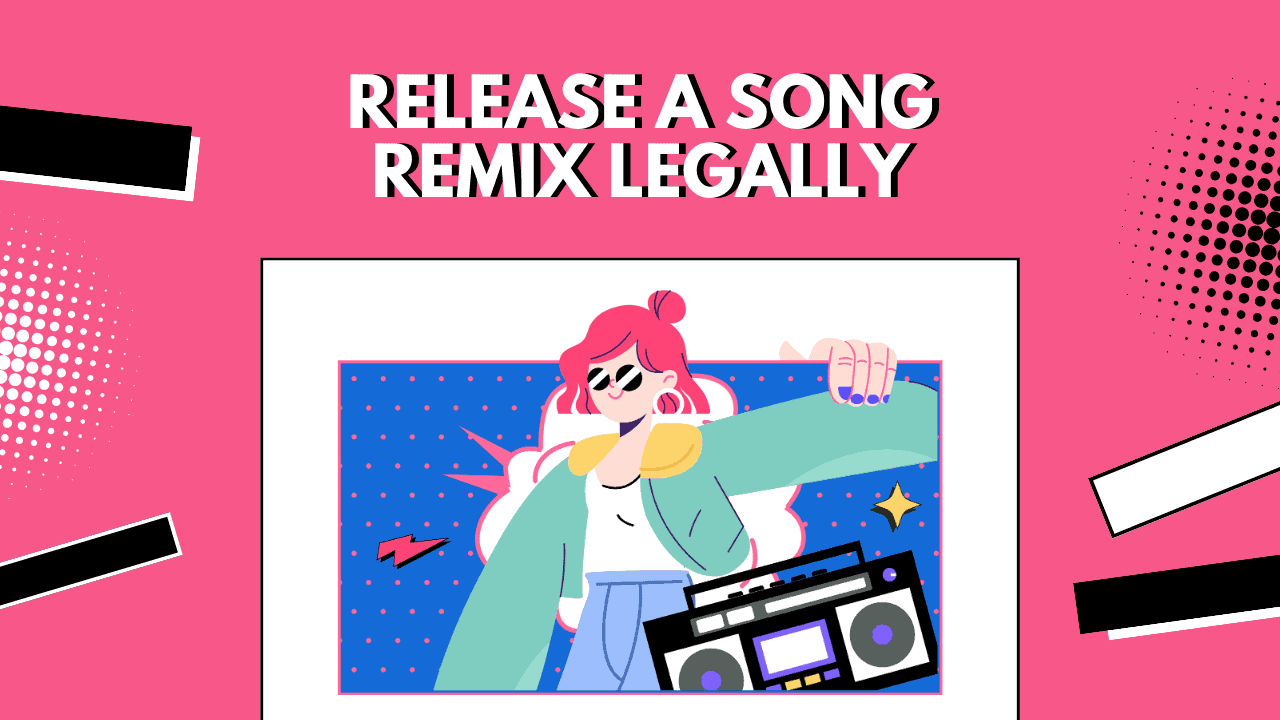Releasing a remix is a fantastic way for DJs and producers to reach new listeners and gain exposure from a popular song. It might even catch the attention of your favorite artists! However, it’s crucial to handle the legal aspects correctly, especially when using someone else’s work. Here’s how to release a song remix legally and avoid any legal issues.
Releasing a Remix Legally: What you should understand!
So, what’s a remix?
Well, here’s what it means:
“A remix is a modified sound recording that sounds different from the original song.“
Unlike a cover, a remix uses the original recording and isn’t just a recreation.
To release a remix legally, you need to ask for copyright permission from the original artist or band who made the song or the sample you want to remix or reuse.
Understanding Music Remix Copyright Law
I get it, copyright can be confusing (and kind of dull).
But if you want to release your remix, it’s crucial to understand the copyright and legal aspects involved.
So, let’s simplify it.
Every track you want to remix has two types of copyrights:
- The master recording
- The song copyright (the actual music and lyrics)
The master recording rights are usually owned by the original artist, while the song copyright is typically owned by a music publisher.
Why does copyright matter? Because a remix is seen as a variation of the original work.
You might ask, “A variation what?”
Simply put, a variation means a changed or edited version of the original music.
And in music copyright law, it’s clear:
The original owner has control over publishing, distribution, and sales, including any variations of the work – which makes releasing a remix without permission illegal.
In short, you can only share a remix you made if you have permission from the copyright holder.
If you’re not planning to share or profit from your remix, then it’s okay to create it without legal permission, known as fair use.
But for independent artists aiming to share their music, gain recognition, and earn money, fair use won’t apply. This means they need to take further steps.
Understanding Remix Licensing
What’s the deal with remix licensing?
Typically, remix licensing follows a ‘work-for-hire’ contract. This means both the remix master and the original song within it are owned by the original artist.
When you release a remix, the royalties are split among all the rights holders – including the artist, music publisher, and you.
To keep things simple, the original artist usually pays a DJ a one-time flat fee upfront for the remix, as part of the licensing contract.
The flat fee varies based on the artist’s popularity, ranging from $100 to $20,000 on average.
Alternatively, you can share earnings through a royalty agreement. However managing these can be complex, so ensure you’re registered with performance rights organizations to receive all royalties owed.
Typically, royalties from the remix are split equally between the artist and remixer. The original artist receives 50%, while you, the remixer, get the other 50%.
However, these terms are negotiable and outlined in the licensing agreement.
How to Get Permission for Remixing a Track
To legally remix a song, you must obtain permission from the original songwriter(s), publisher(s), and owner(s) of the song recording. This is crucial to avoid legal issues.
1. Check Spotify for the track
First, identify the copyright owner(s) of the song. It may have multiple songwriters, requiring permission from each.
If unsure, search for the track on Spotify. This will indicate if the artist is signed to a label or distributing music independently.
2. Find the artist’s contact
Once you know the rights holder(s), try contacting them directly.
Look for contact details on the artist’s official website or in their SoundCloud description.
For well-known artists, reaching out directly may not be effective. In such cases, contacting the artist’s music publisher or collection society is advisable to seek permission to use the music.
3. Make a convincing pitch
A strong remix pitch is a win-win for both the label and the original artist.
Remember, both parties benefit from royalties.
When crafting the email, be clear and honest. You’re asking for a favor, so state your intentions clearly.
If you lack a successful release, share another achievement. Include a link to your music platform.
What if they decline?
If an artist isn’t interested, move on. Their approval is crucial.
Even if both say no, uploading without permission is risky. Bootlegging carries consequences.
Benefits of permission:
- Your remix is legal, avoiding takedowns for copyright infringement.
- You may receive stems, offering creative freedom.



